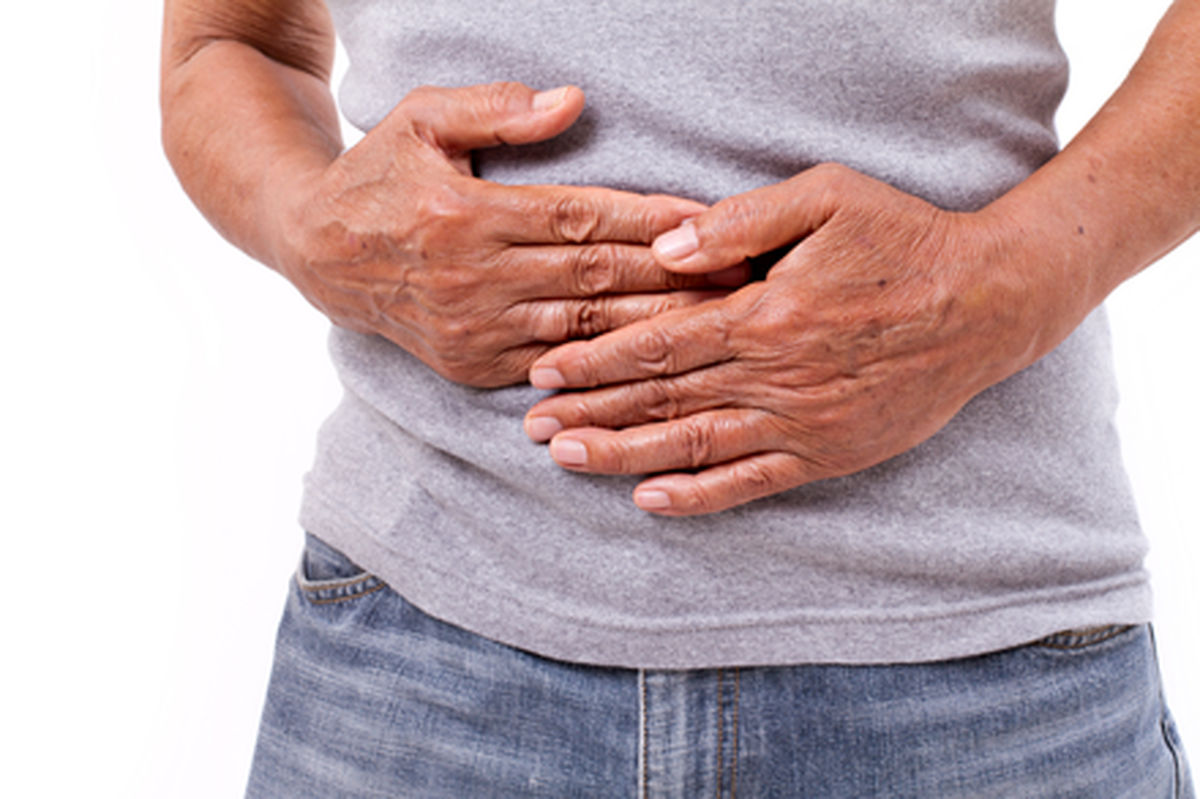
The intestine normally contains gas that is rapidly transmitted through the small intestine to the colon (large intestine). The amount of gas that is normally present is dependent on the effects of colonic bacteria on the undigested food that reaches the colon and the speed with which the gas passes through the intestines and is passed. In healthy individuals, most of the lower intestinal gas that is passed (flatus) is produced in the colon and is not transmitted from the upper intestines.
The definition of excessive gas varies by individual, usually based on what they have considered normal in the past. Some individuals consider excessive gas to be excessive belching or excessive burping, others excessive passing of gas (flatulence), and still others as the sensation of fullness in the abdomen. Although everyone goes through periods of excessive gas, particularly flatulence, it is only when the symptoms become chronic that people become concerned.
Bloating is the subjective feeling that the abdomen feels fuller than it should be, but does not necessarily mean that the abdomen is enlarged. Distention is the objective enlargement of the abdomen. Bloating is not the same as excessive gas.
Continuous distention of the abdomen usually is caused by fluid, tumors, enlarged organs, or fat within the abdomen.
Intermittent distention of the abdomen may be caused by excessive formation of intestinal gas, but also physical or functional obstruction of the intestines.
Belching and flatulence (farting or passing gas) are virtually universal. People fart on average 20 times per day. The number that defines a "lot" of burping has not been determined.
What causes bloating
Flatulence results from the production of gas by bacteria within the intestines (usually the colon) when they digest dietary sugars and polysaccharides that reach the colon undigested.
Increased gas is not caused by irritable bowel syndrome (IBS) or most parasitic or bacterial intestinal infections. It also is not caused by gastritis, gastric cancer, gallstones, cholecystitis, and pancreatitis or cystic fibrosis (unless there is maldigestion of food). It also should not be confused with indigestion, which has caused other than gas.
Excessive production of gas and increased flatulence may occur because of 1) the greater ability of some bacteria to produce gas, 2) maldigestion or malabsorption of sugars and polysaccharides such as that seen in chronic pancreatitis with pancreatic insufficiency, and celiac disease, and 3) bacterial overgrowth of the small intestine.
Studies have shown that each person produces an average of 0.6-1.8 liters of gas per day. It comes from two sources, swallowed air (exogenous) and gas produced by colonic bacteria (endogenous). Intestinal gas is made up of various amounts of oxygen, nitrogen, carbon dioxide, hydrogen, and methane. Oxygen, nitrogen, and carbon dioxide come from ingested air, and hydrogen and methane are by-products of the breakdown of food remainder by good bacteria (probiotics) that live naturally in the large intestine. Detailed analysis of intestinal gas has shown that this it is composed primarily of exogenous air and only a small amount of endogenous air.
Many healthy individuals are concerned that they have too much intestinal gas, thinking that their digestive tract could be malfunctioning. While gas in itself is not dangerous, our inability to control its passage might have social implications.
Common foods that cause gas
-
Certain high-fiber foods may cause gas, including:
-
Beans and peas (legumes)
-
Fruits
-
Vegetables
-
Whole grains
-
While high-fiber foods increase gas production, fiber is essential for keeping your digestive tract in good working order and regulating blood sugar and cholesterol levels.
Other dietary factors
Other dietary factors that can contribute to increased gas in the digestive system include the following:
-
Carbonated beverages, such as soda and beer, increase stomach gas.
-
Eating habits, such as eating too quickly, drinking through a straw, chewing gum, sucking on candies or talking while chewing results in swallowing more air.
-
Fiber supplements containing psyllium, such as Metamucil, may increase colon gas.
-
Sugar substitutes, or artificial sweeteners, such as sorbitol, mannitol and xylitol, found in some sugar-free foods and beverages may cause excess colon gas.




